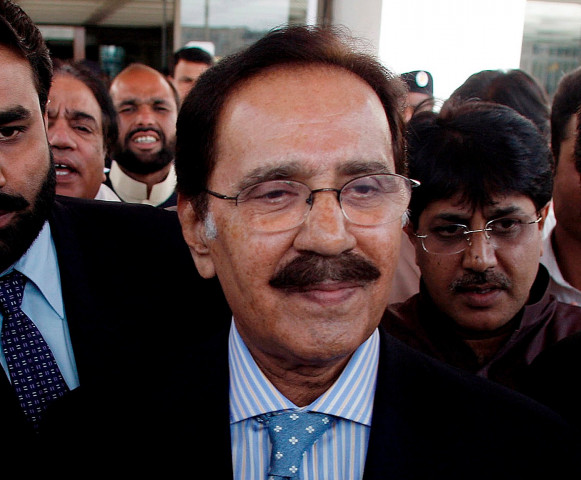India-Pakistan trade: India tackles non-tariff barriers head-on
Pakistan to lay out roadmap for MFN status to India in November.

Despite not having signed any formal agreements, Indian and Pakistani officials were in a highly bullish mood on Thursday at the conclusion of three days of trade negotiations led by the commerce ministers of the two countries.
India seems to have played an extraordinary role as host. Keen to address some of Pakistan’s most pressing concerns on trade, the Indian government arranged for a direct meeting between India’s top economic regulators and the visiting Pakistani businessmen who were part of the delegation. The goal of the meeting was to move forward on one of Pakistan’s longest standing demand from India: the removal of non-tariff barriers to trade.
(Read: Breakthrough in Mumbai - India, Pakistan agree to trade concessions)
Non-tariff barriers to trade are regulations by the importing country that make it more cumbersome for an exporter to sell their goods to a country. India is notorious for its over-burdensome regulations, a legacy of the era of Nehruvian policies.
Yet on Thursday, Indian regulators – including officials from Customs and the Indian Bureau of Standards – sat across the table from Pakistani businessmen, explaining their regulations, the rationale behind them, as well as taking down concerns that the Pakistani traders put forth.
Pakistani officials, for their part, began talking more openly about granting Most Favoured Nation status to India, New Delhi’s top demand from Islamabad.
Commerce Secretary Zafar Mehmood said that Pakistan and India would lay out a roadmap for granting India MFN status in November, when he meets his Indian counterpart in Islamabad. The Federation of Pakistani Chambers of Commerce and Industry – the largest business lobby in the country – has supported granting that status to India.
Commerce Minister Makhdoom Amin Fahim invited his Indian counterpart, Anand Sharma, to Islamabad, an invitation that the latter accepted. Sharma is expected to visit Pakistan in February, along with a delegation of Indian businessmen.
Fahim highlighted the need to open bank branches of both the countries within each other’s territories. He also pitched for an augmentation of trade through the land route.
“We want Safta [South Asian Free Trade Agreement] to be successful,” said Fahim. “I believe Safta would become a bigger economic bloc than ASEAN (Association of Southeast Asian Nations). The atmosphere of fear and apprehension has reduced considerably,” he said while addressing the business chambers in New Delhi on Thursday.
Safta was signed in 2004 to promote and enhance mutual trade and economic cooperation in the South Asian region. Under the agreement, India had been demanding the MFN status from Pakistan.
Sitting by Fahim’s side was Arun Jaitley, the leader of the opposition in Rajya Sabha, the upper house of the Indian Parliament. He endorsed the positive mood, but added a caveat.
“I am extremely glad that governments in both nations have taken this initiative. Our Commerce secretaries met in April and they decided that this trade which is inadequate needs to be expanded. But for trade to grow, you need an environment which is free from terror or any kind of insurgency,” said Jaitley, who belongs to the right-wing Bharatiya Janata Party (BJP).
“We have urged the concerned officials on both sides to expeditiously conclude the liberal business visa regime by November which will rapidly expand the vistas of bilateral commerce,” said Sharma.
“There has definitely been a change of mind. There is significant change in the thinking. People on both the sides now want a good relationship,” said Fahim.
Published in The Express Tribune, September 30th, 2011.



















COMMENTS
Comments are moderated and generally will be posted if they are on-topic and not abusive.
For more information, please see our Comments FAQ